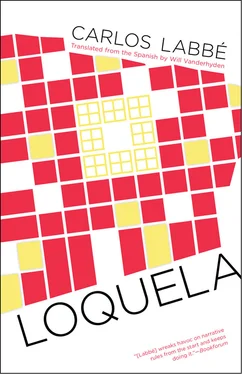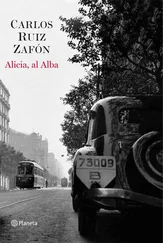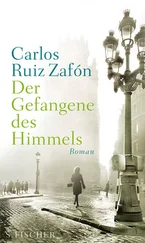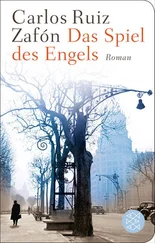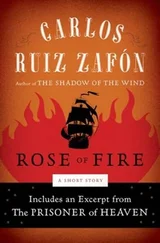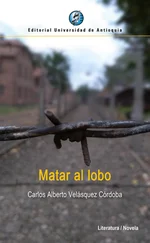What comes next is the moment in which my childhood multiplies into details I’d love to recount and cannot. Most of them were lost the instant we played together, the rest are still there, in Neutria, and you can see them for yourself. Sometimes Neutria was the land of semi-divine emperors, of infinite cruelty or kindness, whose slothful and obese courtiers, in contrast, engaged in decadent melodramas. Other times it was a simple village where farmers, shepherds, and foreigners traded honey, cheese, bread, or fruit for a song or an entertaining story. Or it was the nexus of activity for stylized spies, convertibles, casinos, firearms, hotels, highways, and femme fatales. And in the middle of all those adult faces appears a boyish one, yours, insistently inquiring what it is that we’re playing, and coldly I reply that we’re playing the city of Neutria, not expecting you to make fun of us: you talk to yourself — my mother says people who talk to themselves are lunatics. Alicia gets up, says again that it isn’t make-believe, that Neutria exists; it’s a beautiful place, incredible, we travel there on long weekends with our parents. It’s so much fun that we like to recall everything that happened there. That’s what we’re doing, remembering all the wondrous things, not inventing them.
Of course, you’re the only boy who talks to us and asks us questions. Alicia and I don’t talk about this, but we’re fascinated that you come around and bother us. Make memory, that’s what I said to you, with oh so drunken words, at the party when you came up and hugged me and asked me how I still remembered: you were my first, one never forgets her first. It also pleases us that you watch us play through the window and then ring the doorbell and run away, because there’s cruelty in our inventiveness, because your doubt challenged us. The game changes. The two of us go on to describe everything that occurs in Neutria in order — I start writing in notebooks, we draw a rudimentary map — and from one day to the next every detail of Santiago interests us: the drainage system, the hierarchy of the authorities, the traffic, the demographic distribution, and I surprise myself by paying great attention in my history and geography classes. With the sole objective of convincing you of Neutria’s existence, I open my eyes to the place where I live and realize how much I hate it, I also hear how much other people abhor this chunk of concrete and how much they’d give to move to the coast, to the beach, to the cordillera, wherever. Yes, I know: this is nothing new.
It all began as a joke, as a small act of vengeance, because you had doubted us, and so it was only right that, in the end, it was back in your hands. Remember that winter, the last one on our street. You knock on my door every Friday afternoon and sarcastically ask us why our parents weren’t taking us to Neutria that weekend. Forgive me, what you say is: that strange city. Alicia and I are sitting by the fireplace, that first time we’re eating a big chocolate bar with almonds, and that is your excuse for coming in. It’s raining, of this I’m certain. Alicia says we can’t go to Neutria, it’s dangerous to cross the great suspension bridge that leads to the city in a storm. The Black River is treacherous, it swells violently, swallowing cars and the boats coming in from the sea, rumor has it that it feeds on them, seriously, but also that this is the river’s way of protesting that monstrosity of a bridge that’s been built across it. You listen in silence, probably imagining the river not as a swollen stream but as an aquatic animal with a hard, aquamarine hide, something like a shadow. Then you ask if it eats people too, or just cars and boats, a silly notion, but we try hard to take it seriously. I hurry to respond, citing the legends of Neutrian fishermen, and then Alicia quickly recounts in specific detail the story of a man who, after falling in the river and being rescued, claimed to have been saved by a marine monster. You listen with amazement to the story that Alicia invents on the spot, with total disregard for the rules of Neutria we spent every afternoon writing. I felt betrayed, for the first time I hated her: I was jealous of the attention you were giving her. That night we argued, yelling at each other. Alicia didn’t understand why I was so upset, for her it was all in fun, we were just making fun of you, of how much you wanted to meddle in our business. I calmed down when she proposed that we come up with a new way to humiliate you, using the stories that you asked us to tell. Remembering how you sat down to listen to us, open-mouthed, sometimes asking absurd questions, making us feel superior, clever, intelligent, special, because you were foolish enough to believe us.
Until one day you stopped coming. The next day we waited for you, and the day after that, but you had disappeared. I didn’t tell Alicia this, but I was miserable all week, I thought you’d gotten bored of our stories about Neutria. Not telling them made me forget about that city, it gave me the horrifying sensation that I was trapped in putrid Santiago. If I’d known what was coming, I would’ve preferred your appendicitis got worse rather than have you lie to us. But you lied and our laughter came to an end. On Sunday, you showed up unexpectedly and we went out onto the patio and asked you what’d happened and you stood very still, looking us in the eyes without blinking. You said: I went on a trip with my parents, they took me to visit Neutria. Alicia and I were only quiet for a second, we had to say something or we’d start to cry. It was the end of the game, a situation we’d foreseen so many times, the point when — according to our plan — we’d burst into savage, irrepressible laughter; choking, we’d tell you that Neutria didn’t exist, and how could someone be idiotic enough to try and make us believe our own lie. I was about to say something but Alicia beat me to it, and it was a disaster: my neighbor, my playmate, my best friend turned on me. She sat down next to you, took your hand, smiled at you, happy because at last you knew Neutria. She asked you questions about the redesign of the Plaza de Armas, whether or not you’d gone to the ice cream shop near the entrance to the black beach, if by chance you found the board-walk pretty. The words were already beginning to sound faraway, I couldn’t stand to be in that place any longer, that place I didn’t love, that place I hated. That afternoon was one of the last times I saw you, before the party last Saturday night. And yet Alicia and I have stayed in touch. It’s been hard for us to go back to being the friends we were when we were young, but there were a few summers when she did come see me in Neutria.
Carlos read each paragraph and then, emitting a soft tsk of his tongue, tore out the page. He’d been doing this for quite a while: he stared at the alarm clock on the nightstand; it was two in the afternoon. He was still wearing pajamas. The same confusion persisted that he’d felt when, upon waking, opening his eyes, and contemplating the ceiling, he’d run through in his mind the day that awaited him: revise the novel, write the missing parts, a final pass with a lead pencil or red pen, like a professor hurrying to correct his students’ exams. He hated having to visit those faraway albino girls again and again, to fire the fateful weapon that hurt no one, like he was writing a screenplay for a cartoon. He’d rather stay in bed, trying to recover the thread of what he’d dreamed in the middle of the night. He still retained a few images: an infinite castle that he couldn’t look away from, because his head was the only part of his body not buried in sand. And the epilogue, if he could call it that, when he came to a pleasant town where the sea’s freshness made him feel weightless. He went into a barbershop — not a stylist, nothing like that — and the barber, wearing the face of a childhood friend, greeted him with a joke. The door opened, a woman appeared whom he didn’t recognize, but who he knew to be his girlfriend because she hugged him, whispering that this was the way she was going to bring him back from the dead. And she kissed him. He recalled something the professor of his detective fiction class had said: death should not be taken lightly. Repeating this advice to himself, he went to his desk and took out the notebook that contained the novel. He read quickly: it was a holiday the day the man learned of the existence of the albino girl, that she was in danger, and that she’d come searching for him anyway. The streets were empty, so it was easy to watch her cross over, eyes fixed on him, paying no attention to the car approaching at full speed from the opposite direction.
Читать дальше
